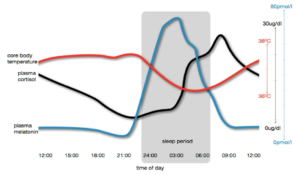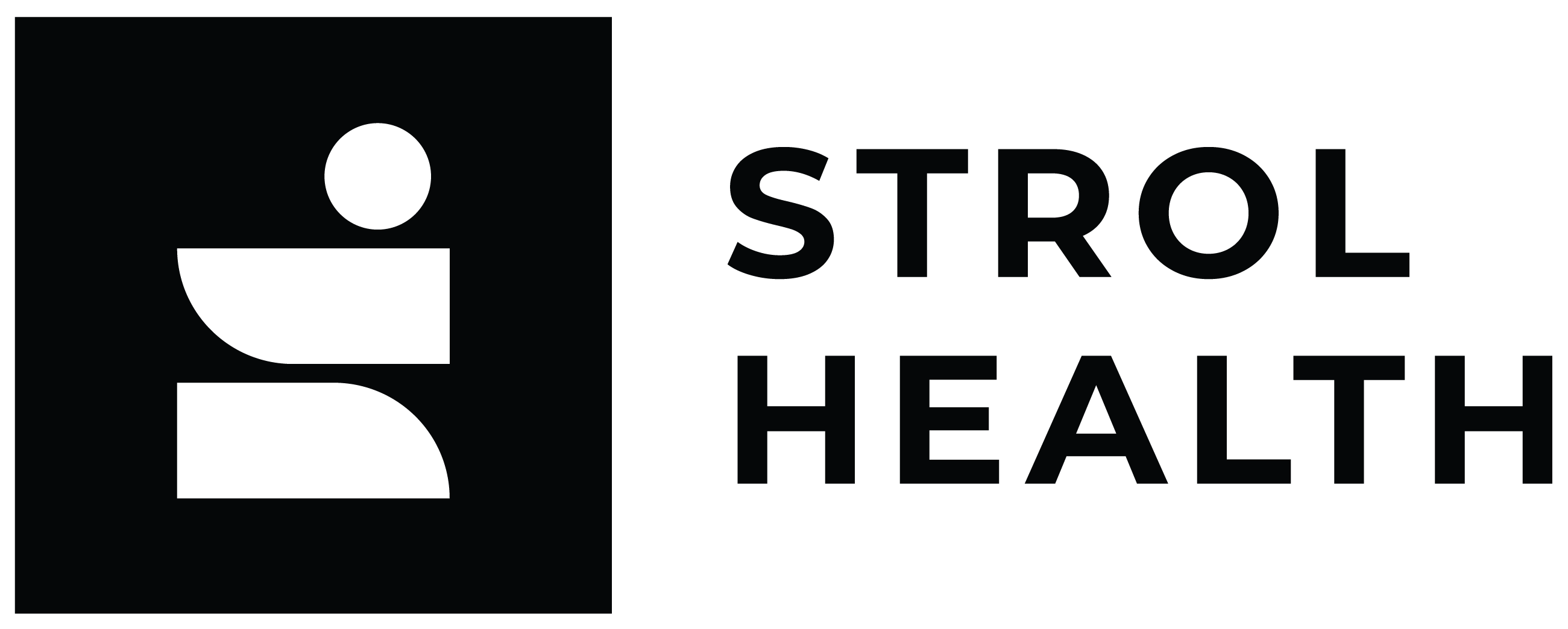Sleep
What is Sleep?
Sleep is the most important period of recovery for the brain and body, an essential component of daily function. Sleep quality, consistency, and amount determine the effectiveness of this recovery period. The quality of recovery during sleep ultimately determines the quality of your daily well-being, vitality, functional longevity, and disease risk.
The reason sleep is so critical is because during sleep your body undergoes a dynamic set of changes that impact the function of all systems in the body. With adequate sleep, your mood, blood sugar control, ability to maintain weight, ability to form memories and learn, and resistance to chronic diseases, including obesity, neurodegenerative diseases, and cancer, are all improved. Sleep also impacts your ability to make prudent nutritional decisions and influences the efficacy of the digestion and utilization of nutrients. Furthermore, sleep directly impacts your aerobic capacity, and your ability to perform and recover from deliberate physical activity or movement, i.e., fitness training.
While sleep undoubtedly influences lifestyle behaviors critical to one’s health and performance in life, most people fail to implement healthy sleep behaviors. The reasons for this are multi-faceted and will be explored in this post, as well as the physiology of sleep and how to improve sleep quality.
What Happens to the Brain and Body During Sleep?
The more knowledge you have about the brain and body, the more you can relate your lifestyle, nutrition, and fitness behaviors to logical aspects of what’s happening in the body, therefore, empowering you to act in alignment with health goals. During sleep, your brain and body are in a constant, dynamic fluctuation of regenerative processes. All day every day, your brain produces hormones and chemicals that regulate sleep and wakefulness. To explain the specifics of sleep, we will first explore what happens when you wake up.
When you rise in the morning, ideally in relative correspondence with the sun rise, your adrenal cortex (glands that sit on top of your kidneys) release cortisol. Cortisol is a hormone that induces a feeling of wakefulness in order for you to make the most of the daylight period. As you go about your day, and engage in mental and physical activity, cortisol levels begin to dip and sleep pressure builds. A compound in metabolism called adenosine diphosphate (ADP) builds up in the brain and begins to trigger the release of melatonin, the hormone that tells the body it needs to sleep. Ideally, this occurrence corresponds with the setting sun.
These biological changes coincide with changes in core body temperature. Your body temperature peaks just before sleep, then dips throughout the night as total energy expenditure lowers. This process can also be referred to as circadian rhythm. Circadian rhythm is the homeostatic (maintenance of life) mechanism that controls sleep and is tied to the diurnal rhythm with the rising and setting sun. Humans have evolved with a well-adapted biological clock, controlled by several parts of the brain, that enables us to maintain health and stay alive. Figure 1 below showcases the normal balance between body temperature, cortisol, and melatonin throughout the day. [1]

Figure 1: The normal synchronous relationships between sleep and daytime activity and cortisol, melatonin and body temperature.
Sleep consists of four main stages divided into two categories: non-rapid eye movement sleep and rapid eye movement (REM) sleep. [2]
- Non-REM Sleep
- Stage 1 & 2: As the stages of sleep progress through non-REM sleep, your brain waves are slowing and your body is relaxing.
- Stage 3: This is the deepest stage of non-REM sleep. It is critical to recuperation of body tissues and the formation of memories. Quality stage 3 sleep promotes optimal mental acuity the day following a great night’s sleep.
- REM Sleep
- Stage 4: This is the period of intense dreaming. During this stage of sleep, brain activity heightens dramatically and most of the body experiences temporary paralysis (so you don’t act out your dreams). Brain activity, although heightened, looks extremely different than it does during the day. An incredible amount of neuroelectric activity is taking place between the amygdala (the emotional control center of the brain) and other brain regions. Stage 4 REM sleep is critical to the recuperation of brain tissue and is believed to be central to emotional regulation.
You go through all four stages over and over again as you sleep, typically about four to six times, with the REM stage getting longer with each cycle. All individuals have a unique rhythm of sleep cycles, which generally last between 70 to 120 minutes. This is known as your unique sleep architecture; each stage plays a key role in the quality, consistency, and amount of sleep you achieve and influences the health of all body systems.
Why Sleep is Important?
“From an evolutionary perspective, the fact that sleep exists in almost all animal species—despite the fact that it creates vulnerability and takes time away from feeding or procreating—is a strong indication that it is fundamental to well-being.” [3]
Sleep is critical to physical and mental development in babies, children, and young adults. A lack of sleep in adults is associated with negative health consequences including cardiovascular disease, a weakened immune system, increased risk of obesity, type 2 diabetes, metabolic syndrome, impaired thinking and memory, neurodegenerative diseases, and mental health problems including depression and anxiety.
Great sleep occurs when your circadian rhythm is rolling like steady waves in the ocean with consistency. Lifestyle behaviors such as sunlight exposure, caffeine intake, and exposure to blue light via electronics are all factors within your control that influence the quality and consistency of your circadian rhythm.
Sleep in Modern Society
In today’s society, many people deprioritize sleep, which brings on a slew of ironic negative consequences; as we cut out sleep in order to get more done in a day, we consequently lower our daily functioning causing us to perform poorer and with less efficiency throughout the day. When we think about the way our species evolved, and the reality of our current lifestyles, many factors that elucidate the deviation from physical and mental health and vitality come to light.
Our hunter-gatherer ancestors rose with the sun and proceeded to physically exert themselves by searching for food, fortifying their shelter, taking care of children, and contributing to their community. These activities tuckered people out and they would easily dip into a great night’s sleep soon after the sun set. Hundreds of thousands of years of evolution solidified these behaviors into our genetic code and our neurobiological and physiological hardwiring
During these vital times in human evolution, there were no cell phones or TVs to emanate blue light and throw off our circadian rhythm, tricking the brain into thinking it was sunlight by artificially upregulating cortisol and decreasing melatonin at night. There were no work emails or social feeds to scroll through to promote a state of acute stress just before settling down for a night of rest and recovery. There were no desks to sit at all day; sedentarism was not an option. There were no processed food to manipulate our blood sugar, gut microbiota, and quality of our body tissues for the worse and deviate the balance of natural biological processes. The option to stay inside all day and never see natural light did not exist. Further, there were no societal anomalies that celebrate working like a fiend at the sacrifice and detriment of our own physical and mental health.
These modern factors of sleep disruption are causing people to deprioritize sleep and lose control of their health and vitality. Yet, these are also lifestyle factors we can take back control of and deliberately manipulate to promote better sleep. Here are some ways to realign your sleep and circadian rhythm with their most natural and healthy form:
- Determine an ideal wake-up time
- Tick the clock back 8 hours to determine an ideal bedtime
- Follow this same sleep/wake schedule as consistently as possible
- Set an alarm at least 30 minutes before your ideal sleep time
- At this point, put your electronics away and do something else, like read a book, chat with your partner or roommate, listen to music or an audiobook
- Also, start dimming the lights, perhaps light some candles
- Receive at least 15 minutes of sun exposure twice per day
- Stop caffeine consumption six to eight hours before bedtime
- Move your body for at least 30 minutes daily
- This includes deliberate fitness training or casual activities like walking
- Eat your last meal at least 2 hours before your ideal bedtime
- Prioritize good nutrition for the body throughout the day
References
- Hickie IB, Naismith SL, Robillard R, Scott EM, & Hermens DF. “Manipulating the sleep-wake cycle and circadian rhythms to improve clinical management of major depression.” BMC Med. 2013 Mar 22;11:79. doi: 10.1186/1741-7015-11-79. PMID: 23521808; PMCID: PMC3760618.
- “How Sleep Works: Understanding the Science of Sleep.” Sleep Foundation, 23 Oct. 2020, www.sleepfoundation.org/how-sleep-works.
- Schwartz WJ & Klerman EB. “Circadian Neurobiology and the Physiologic Regulation of Sleep and Wakefulness.” Neurol Clin. 2019 Aug;37(3):475-486. doi: 10.1016/j.ncl.2019.03.001. Epub 2019 May 7. PMID: 31256784; PMCID: PMC6604835.
Strol Health PLLC (“Company”) owns and manages the content on this Website. The information provided on this website is not medical advice and does not create a patient-provider relationship. Content is provided for informational and educational purposes only. The Company makes no warranties or guarantees as to the results from following the recommendations herein, including but not limited to content provided on blog posts and videos.
Only through a personalized treatment plan based on individualized assessments by licensed professionals may we properly assess your nutrition needs. Please contact us directly to discuss your health concerns and nutrition goals. In the event of a medical emergency, call 911.
Your website-related activities and communications do not create a provider-patient relationship between you and Company. Further, they do not create a duty for the Company to follow up with you. To learn about the Company’s services, please contact us directly at [email protected].

